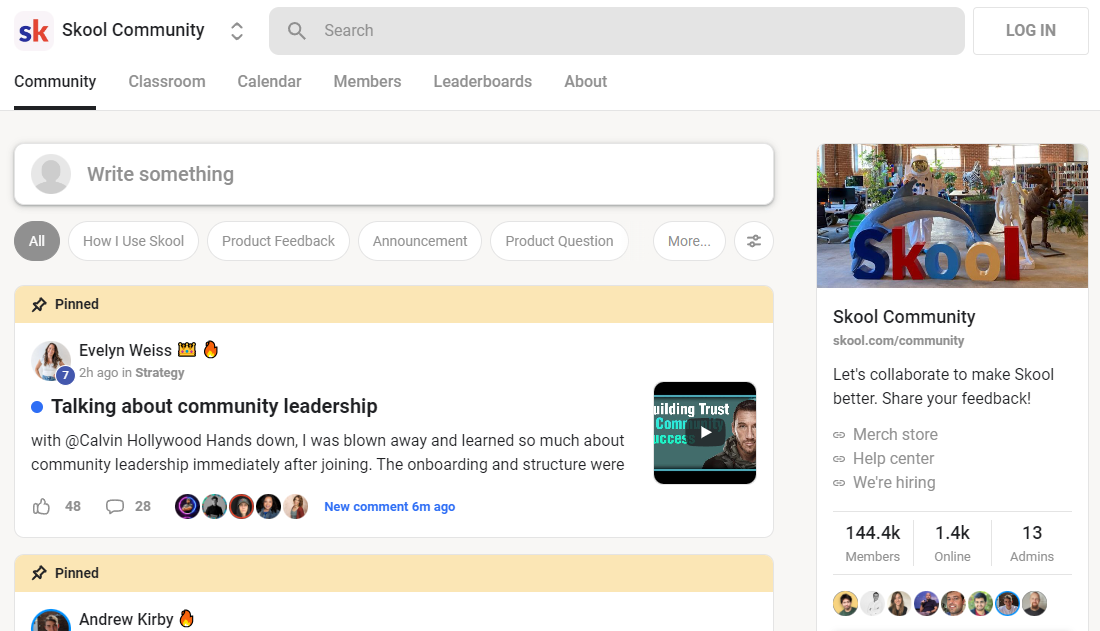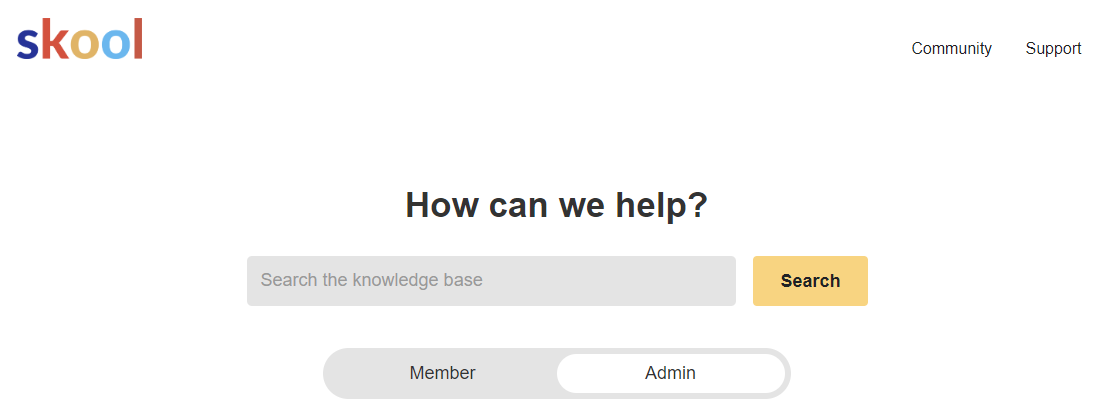Skool provides best-in-class gamification attributes that enhance engagement. As an example, participants can make levels based on their participation, which unlock program material and other rewards that even more motivate them.
Previously, makers had to use different tools for hosting courses, developing communities and managing email marketing. This created a disjointed experience for both makers and their target markets.
Producing Courses
Skool has a basic, straightforward user interface and prioritizes area structure and program hosting over other functions. It enables makers to develop a lively community for their courses and coaching programs by attaching them with the best target market. This also helps them keep an eye on the wellness of their material business with the help of a basic dashboard.

To begin, a person can register for a cost-free 14-day test of Skool. Afterwards, they can pay $99 a month for the system to host a solitary area. There are no other pricing options available for the moment. Skool likewise refines repayment and pays creators weekly, but it does charge a 2.9% purchase charge.
One of the unique facets of Skool is that it can be utilized to develop interactive training courses. These can consist of online webinars, team tasks and real-time conversations. These types of training courses urge engagement and rise course completion rates. On top of that, Skool’s gamification features aid to motivate neighborhood involvement. For example, members can gain points and unlock training course content when they reach specific levels in the neighborhood.
Users can also utilize the social prey on Skool to upload updates and communicate with others in the neighborhood. The feed looks like a Facebook group, but with a more controlled method of posting. This aids to stay clear of the kind of spam and abuse that occurs on other social systems.
Taking care of Communities
Skool is a very straightforward system to utilize, for both participants and admins. Its simplicity is one of its main marketing factors– when a person joins your community they won’t be confronted with a number of alternatives or features that can derail their experience and puzzle them.
The platform starts as a private team by default, but you can easily alter this to open your area to anyone that you wish to belong to it. Once you’ve done this you’ll see a social feed like you would on Facebook Groups or WhatsApp (but without all the rip-off stuff and swearing).
You can likewise add a class tab to your area that you can utilize to share academic material with your members. This function is especially valuable for communities that are concentrated on understanding or professional advancement as it aids to develop an instructional structure and makes it very easy for members to track their progression. In addition, the platform has gamification aspects that permit participants to make points by liking blog posts or remarks. When they reach a certain level they can unlock resources, such as courses, further driving engagement.
The various other amazing thing is that Skool has a mobile app, much like Mighty Networks or Slack, so participants can keep up with your neighborhood and engage on the move. This is an excellent way to urge and engage your members and to help them obtain support from each various other when they require it, instead of just turning to you for responses.
Skool Website
Skool focuses on gamification, allowing individuals to make factors and badges for their payments. This inspires members to involve with the community and contribute to discussions. In turn, this helps them level up and unlock rewards like video clips and other material. Admins can also establish courses to be opened at certain degrees to more drive interaction.

The Skool user interface is spick-and-span and intuitive. Its main features consist of the Community tab, which looks just like a Facebook team feed. Below, users can publish comments and text as well as upload photos, web links and video clips. Participants can likewise watch each others accounts and get in touch with them. Moreover, customers can create private teams in the area to go over particular subjects.
An additional function of Skool is the Classroom tab, which resembles a YouTube livestream or Zoom meeting. Utilizing this, administrators can hold trainings and webinars for their trainees. They can additionally include occasions in the calendar to remain updated on upcoming events and Skool Website.
Nevertheless, some elements of Skool can make use of enhancement. For example, the platform isn’t flexible when it pertains to money making as individuals can not offer numerous rates rates for their programs and neighborhood subscriptions. Additionally, the tool lacks an email marketing function, which may be a deal breaker for some course makers. It also does not have indigenous video organizing, implying that customers need to make use of external platforms like YouTube, Loom and Vimeo for their videos.
Including Content
The procedure for including material and communicating with members on Skool is simple and simple. Admins can create articles with text, GIFs, video clips and polls. They can additionally include occasion calendars to notify community members of upcoming group Zoom calls or live streams. Furthermore, they can utilize Skool’s e-mail broadcast feature to send out a message to the whole area with a solitary click. This removes the requirement for identifying and list segmentation, which can be difficult.
Additionally, Skool’s gamification functions can improve engagement and customer retention. It motivates members to interact with the content on a regular basis by compensating them with different advantages. These include unlocking course content, making points and gaining a spot on neighborhood leaderboards.
While Skool uses a host of helpful features for developing and providing on the internet courses, it’s not for everyone. The platform is best for instructors, professionals and other information business owners. Nonetheless, the cost can be a barrier for some individuals wanting to monetize their online content.
In addition, the absence of basic tiers and a short free trial might be a deterrent for numerous. On top of that, the system’s laser-focus on eLearning can make it less desirable for people that intend to market other digital items. However, despite these drawbacks, Skool Website is still a practical alternative for any individual seeking to produce and monetize on-line courses.